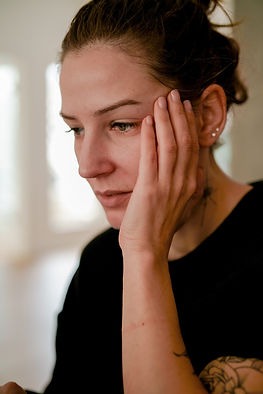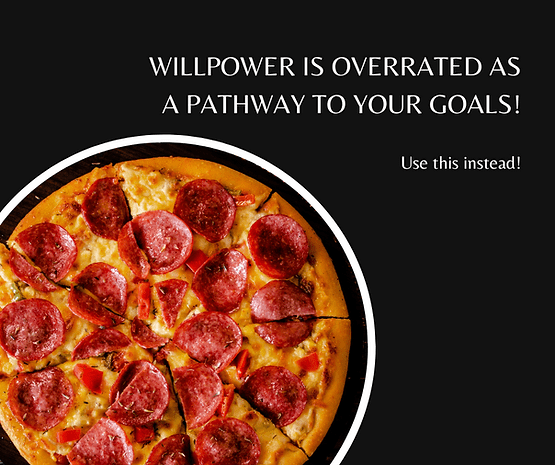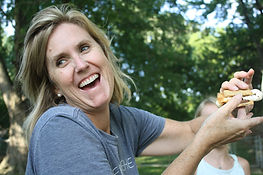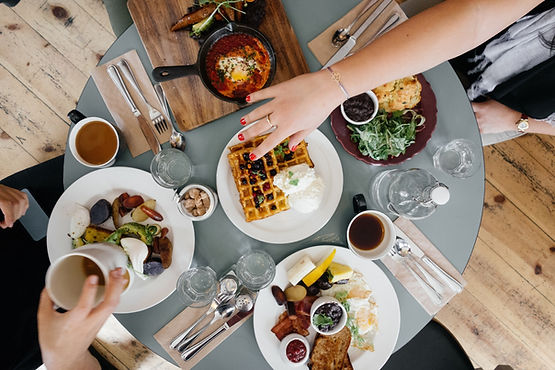How to Fix Your Emotional Eating Issues (PS: Dieting Isn’t the Answer)
The Connection Between Psychology & Physiology
It’s a fact that our psychology and our physiology are intimately connected. In this blog we’ll discuss how this works in the context of emotional eating and how to fix your emotional eating issues in an evidence-based way that will not just be a band-aid.
The Placebo Effect
The placebo effect is a “simple” example of this relationship. When we believe that what we do will have a positive effect (i.e., take a pill), even if its chemical properties are designed to have no effect, we will experience a positive effect, to some degree.
Polyvagal Theory: How Our Bodies Influence Our Minds
Polyvagal theory shows us how our minds and the stories they tell are influenced by the physiological state we’re in. For example, if we move into fight or flight, the mind will create a story to make sense of the state shift. In this state, the story will often sound very black and white. For example, “My boss hates me!” or “I don’t deserve it!”
The stories the mind will tell if you shift into the dorsal autonomic state (a shutdown state characterized by heaviness, numbness, or lack of agency), may sound different. You might recognize a voice within yourself that sounds helpless, pessimistic, or purposeless (i.e., “I’m worthless” or “I don’t know why I even try”).
The respective stories are an attempt to minimize what often feels overwhelming inside the body, but the narratives unintentionally create more problems and act as reinforcers for the state versus support regulation back to a more stable physiological baseline. When we feel stable, we demonstrate through our actions (and thoughts), more empathy, understanding, validation, and compassion.
Whatever is happening in your body affects your mind and vice versa!
So how does this relate to dieting and emotional eating?
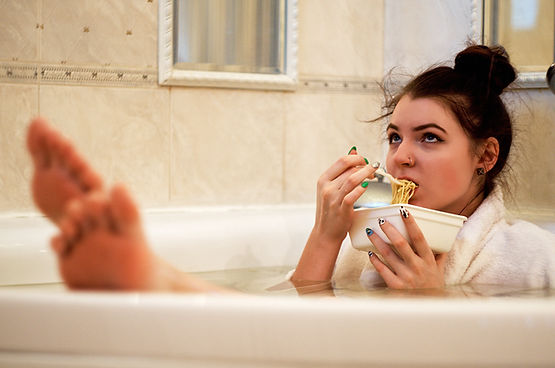
Emotional Eating Issues: The Core
When you feel stable, centered, calm, and clear, do you tend to eat emotionally?
I’m going to take a leap and guess that your answer is “no!”
What is Emotional Eating?
The phenomenon of emotional eating, while it looks different between people and even within a person when you consider emotional eating episodes, is when we use food to assuage, avoid, shift, or deny our emotions. Usually we’re trying to make ourselves feel better, so the assumption is that the emotions which trigger emotional eating, are typically experienced as negative or unpleasant.
I have clients who eat emotionally to extend positive emotions, however, so it’s not binary. But what this tell us is how important is to develop awareness for yourself regarding your tendencies!
Emotional Eating Issues: The Cycle and Weight Gain
What often happens when a person consistently emotionally eats, is they gain weight. Emotional eating is not eating when we’re hungry (although what we may call emotional eating if we’re dieting in too aggressive a manner, is actually eating because we’re experiencing significant hunger!). And then, because we experience that weight gain as negative, we decide to diet and restrict our food to hopefully lose weight.
Now, it may not sound weird to you how I phrased the last sentence above, “…because we experience that weight gain as negative…,” but it’s meaningful. Most people perceive weight gain to be negative or bad. Most people view themselves as bad or gluttonous, or lacking in discipline or willpower, if they gain weight. But I think we need to acknowledge the influences that have perpetuated this belief and remember that there is nuance to consider.
Is it bad to eat to feel better? You might think it absolutely is! But there are so many reasons we eat outside of hunger, and it’s actually functional, effective, and healthy! Additionally, if food is your choice of substance when you have no other means of coping or skills to emotionally regulate, I’m not going to tell you to go grab the heroine or the booze instead!
But this point is the perfect segue into why dieting doesn’t work to solve emotional eating.
Why Dieting Won’t Fix Emotional Eating
If we lack the skills to regulate our emotions when we’re not hungry, how do you think we’re going to do regulating our emotions when we are hungry?
The Double Bind of Dieting
Dieting asks us to create a caloric deficit for the purpose of weight loss. As someone who has dieted for many years of my life, and having worked with dieters for decades, I can tell you that the majority of people who diet will experience hunger. That being said, even if we’re not dieting, we will experience hunger. But that’s my point! If we’re not unnecessarily hungry, it makes emotional regulation so much easier!
Dieting puts an emotional eater in a double bind.
The Myth of Willpower
As a coach and a behavior change specialist, I know the tendency of us humans to go all-in and well, let’s call it what it is, fail miserably.
It’s not the “going all-in” that’s the problem though, actually. I love a good, “Let’s do this!!” combined with an effort-over-outcome mentality. The problems arise with a lack of regard for all the possible constraints that one may face on the road to making the change they desire. It’s the lack of time spent acknowledging that very real obstacles will present themselves, and planning for what we will do (or not do), when they occur.
Often we’re not aware of our personal pitfalls and tendencies. Or we’re aware, but we ignore them! We also fail to set up an adequate support system. And when we inevitably have a setback, we flounder because we expect perfection. We tend to think in black and white ways, talk to ourselves critically and harshly, and lack the skill of emotional regulation when things get hard.
And for all these reasons, it’s why when we’re aiming for an important change, we choose the least hard thing to start with.

Building a Better Foundation
In other words, we engage in the thing that we might think, “This is so silly!” about. You’ve never worked out before? No, I don’t recommend going to the gym 3x per week, even if it’s in your living room with a video.
Why, you ask?
Start Small: Why Incremental Changes Work
Because ‘going to the gym’ isn’t just going to the gym. There exists a whole sequence of other behaviors that are required to get you to the gym! If you plan on doing it in the morning, you’ve got to learn to get up earlier! You’ve also likely got to figure out what you’re going to wear. If you’re a parent, what are you going to do about the kiddos that you wake up?
Precisely because of all these things (that most of us don’t think about when we jump straight to the thing), it’s best to start small.
Gain a sense of success. Momentum. Consistency. Gain competence that you can do it.
Or, recognize through these experiments, that you need to modify your expectations about what going to the gym is going to look like!
An Example: How All-In Often Fails
New Year’s resolutions are the perfect example of how going “all-in” often fails. By 2-3 months into the year, the majority of people have given up on their goals.
I remember when I first started road cycling, and I was so gung-ho! My boyfriend at the time was my riding partner, and then he suggested that we start riding with a local group so I could learn the ins and outs of riding with a pack. I was terrified, but I got involved.
I met some amazing people, and they suggested, knowing that I was a new rider, that I get with a cycling coach. And they had a recommendation. It should come as no surprise that I love coaching. But I also love being coached! Because why? Because I get to learn—from someone who knows a lot more than I do! I get to have someone in my corner helping me to do things that will bolster my confidence, help me gain a sense of momentum, and gain competence.
But listen, when I first met my cycling coach, I told him that I wanted to do RAAM. If you’re not familiar, this is the Ride Across America race. And yes, it’s exactly what it sounds like. You ride across America.
All…………………. The……………………….. Way…………………………..Across………………………America!
And the most I had ridden at the point of meeting him, was about 40 miles.
His reaction was priceless. I recall his looooong pause. And then… “How about in a couple of years?”
All I really had to hear initially was that the endeavor would require upwards of $30-40k, and my dreams were shattered!
Learn the Skills to Lay a Strong Foundation
No, to be real, it was the wake-up call I needed. I revised my goals and seven years later (wow, has it really been that long?!), if you know me, you know how much I love cycling. Still! And I’m still learning!
But that’s my point! Sometimes… well, most times… we need someone to help us break things down to small, manageable, bite-sized pieces to really support a strong foundation.
If you’re an emotional eater, this is why diets won’t fix emotional eating! Dieting lays a foundation of continued avoidance of emotion. It reinforces what you already struggle with. It doesn’t consider the laying of a foundation level of skill to support a healthy relationship with food.
Why Diets Won’t Fix Emotional Eating Issues: A Story
When I was dieting for physique competitions (and let me preface by saying that I do not lose weight easily, have quite a lot of muscle, and feel hunger very intensely), I noticed some interesting behaviors showing up that had never been present for me before.
- Lots of shopping: I spent more money on material items than I ever had before
- Significant irritation and a narrower window of tolerance for much of anything (i.e., things felt super difficult that never would have otherwise)
- Fatigue that impacted my ability to perform at work and focus at a high level
- A relaxing of moral standards and what I’d previously deemed to be non-negotiable ethical boundaries
- I was lean… and quite honestly… mean!
It makes sense!
But what’s important to recognize is that I experienced this, as a person with years of both personal and professional practice with psychological flexibility, acceptance, emotion regulation, meditation, breathing, mindset, cognitive behavioral training, you name it!
I’m not going to tell anyone that they can’t diet or work toward a weight loss goal. But we do need to be discerning about our particular circumstances and attempt to meet the important needs that are present beyond what would feel immediately gratifying.
A Compassionate Approach to Self-Care
It’s important to recognize that for many emotional eaters, dieting becomes another way to assuage uncomfortable emotions. After a binge or emotional eating episode, a vow to restrict food or exercise more or skip breakfast, whatever it is, can feel like we’re doing something good for ourselves when we the experience of shame, guilt, or disappointment feels like it’s just too much to bear.
Beyond Quick Fixes & Building a Supportive Framework
So a diet, really, is exactly what we don’t want to reach for. Ideally, we learn the skills we need for tuning into our inner experience, physically, emotionally, and psychologically, and we learn to reach for those instead… most of the time!
Tackling emotional eating requires more than just willpower or a new diet plan; it demands a deeper understanding of the interplay between our physiological states and psychological narratives. Dieting, with its restrictive nature, often exacerbates emotional struggles rather than resolving them, creating a cycle of frustration and failure.
Instead of focusing on rigid dietary rules, we should prioritize developing emotional regulation skills and self-awareness. By acknowledging our body’s signals and learning to address emotions directly, rather than masking them with food or extreme dieting, we build a more sustainable and compassionate approach to self-care. Small, incremental changes and a supportive framework can help break the cycle, allowing us to cultivate a healthier relationship with food and ourselves.
Remember that progress is built on understanding, patience, and self-compassion, not on the unrealistic expectations of quick fixes.
Looking for more support?
Check out The Confident Coping Without Food System! This was previously called the Food & Body Freedom Experience, and that’s exactly what it’s all about! This 16-week online coaching program has a built-in support community and weekly check-ins with Dr. Kori to support your consistent integration of the teachings designed to liberate you from chronic dieting practices, build body image resilience, end compulsive eating, and change your relationship with food, your body, emotions, and yourself so you can take your control back and experience greater clarity and confidence in your life.
Check out my online, self-paced course, End Emotional Eating & Change Your Relationship with Food: Over 400 students have taken this course, rated it with 5-stars, and shared how impactful it has been for them! Jam-packed with resources to support your development of new skills, this course will change the way you think about your emotional eating for good!
I also offer virtual one-on-one coaching: Learn more about my Liberated Life Coaching options.

